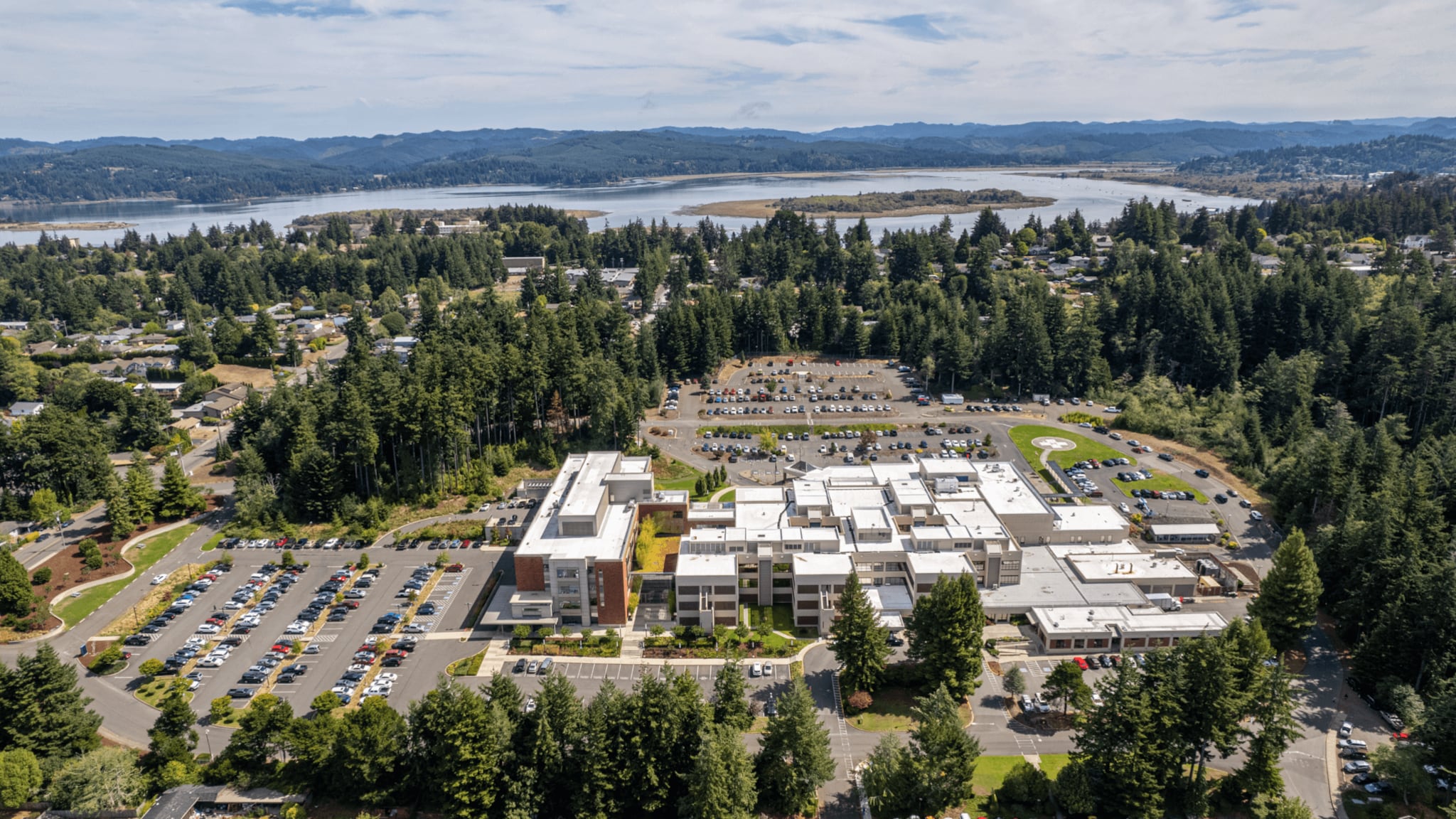The Oregon Journalism Project has learned efforts are underway to rescue the Bay Area Hospital in Coos Bay from being acquired by a private equity company.
“We are hoping to save the Bay Area Hospital,” says Mike Selvaggio, political director of United Food and Commercial Workers Local 555. “We’re looking after our members as well as the broader community.”
As The Lund Report and others have reported, the 172-bed hospital, the largest on the coast and the only Oregon hospital owned by a local taxing district, is in deep financial trouble.
Nearly all hospitals suffered during the pandemic and afterward, but the pain is particularly acute at Bay Area. In December, the hospital’s board announced it lost $54 million between 2022 and 2024 and had signed a nonbinding letter of intent with Quorum Health, a private equity firm based outside Nashville.
Board chairman Troy Cribbins responded to negative reaction to that decision in a Jan. 28 statement. “We hear the frustration and sadness from you, our community members, as you recall a time when independent community hospitals could flourish,” Cribbins said. “The current financial situation isn’t the result of mismanagement or any one person’s decisions—rather, it reflects the serious and ongoing challenges facing many independent hospitals nationwide.”
Here are the salient points about the controversy:
WHY IS BAY AREA HOSPITAL IN TROUBLE?
Coos County residents are disproportionately older (28.9% are over 65, compared with the state share of 19.6%) and more likely to depend on the Oregon Health Plan, which serves low-income residents (39% in Coos Bay, versus 33.5% for the state).
And the hospital’s most recent monthly financial report shows that fewer than 15% of its patients have private health care insurance. That rate is far lower than the average Oregon hospital’s, and 10 percentage points below what the hospital says it needs to break even.
On a larger scale, an unfavorable payer mix drove Legacy Health into the grasp of Oregon Health & Science University last year. But OHSU, which in more flush times expanded its network to hospitals in Marion and Washington counties, is in no shape to acquire Bay Area.
“The financial issues that we’re seeing at Bay Area are a symptom of a larger, deeper problem around how we pay for health care in this state,” says Becky Hultberg, CEO of the Hospital Association of Oregon. “If we want a different outcome, we have to start addressing the underlying issue, namely that hospitals aren’t being paid enough to cover the cost of caring for patients. And the state can take action to change that.”
WHY DOES IT MATTER?
If Bay Area were to close, patients would have to drive two hours over the Coast Range to Eugene for equivalent care. On top of that, according to the South Coast Development Council, Bay Area is by far the region’s largest employer, providing 1,051 jobs.
Nearly half of the employees—457 at last count—belong to UFCW. Selvaggio says the union is working closely with community stakeholders and area lawmakers to come up with a plan to keep the hospital in public hands. “The first step is to make sure it doesn’t get sold off to a private equity firm that’s going to strip it for parts,” Selvaggio says.
Quorum didn’t respond to a request for comment.
WHAT’S WRONG WITH QUORUM?
For-profit hospitals are rare in Oregon. Currently, according to the Oregon Health Authority, only two of the state’s 61 hospitals are for profit: McKenzie-Willamette Medical Center in Springfield and Willamette Valley Medical Center in McMinnville.
UFCW’s research shows Quorum has over the past decade sold or closed 26 of 38 hospitals it has owned. Private equity investments in health care have become increasingly controversial as research shows investors sometimes put profits before patients. Last year, a bill that would have limited private equity investments in doctor practices passed the Oregon House but failed in the Senate.
Bay Area sought interest from others, but ultimately, the board said, Quorum presented the most viable path to staying open. “All options were thoroughly reviewed and considered,” says hospital spokeswoman Kim Winker. “Without immediate action, the clock will run out on our hospital as a health care resource for Coos Bay. We’re taking action right now to stop it.”
WHAT’S THE PLAN?
The alternative to a lease and operating agreement with Quorum would tentatively include new property taxes from the Bay Area hospital district (about $10 million a year) and state funding of about $24 million a year for two years, giving the hospital more time to improve its finances.
UFCW and its allies are just beginning a full-court press in Salem, where lawmakers have looked favorably on South Coast funding requests in recent years, allocating $40 million to a Coos Bay port project in 2023.
State Sen. Dick Anderson (R-Lincoln City), whose district includes Coos Bay, says he has encouraged hospital officials to listen to what UFCW and its allies have to say. The group was also due to present its ideas to the Legislature’s Coastal Caucus after press deadline. The structure of a rescue is flexible. “Our mission isn’t to pass any specific plan,” Selvaggio says. “It’s to save the hospital.”
This story was produced by the Oregon Journalism Project, a nonprofit newsroom covering rural Oregon. OJP seeks to inform, engage, and empower readers with investigative and watchdog reporting that makes an impact. Our stories appear in partner newspapers across the state. Learn more at oregonjournalismproject.org.
